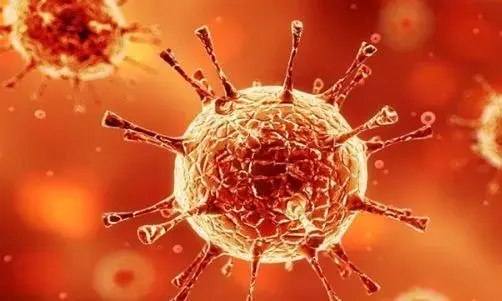- Home
- Medical news & Guidelines
- Anesthesiology
- Cardiology and CTVS
- Critical Care
- Dentistry
- Dermatology
- Diabetes and Endocrinology
- ENT
- Gastroenterology
- Medicine
- Nephrology
- Neurology
- Obstretics-Gynaecology
- Oncology
- Ophthalmology
- Orthopaedics
- Pediatrics-Neonatology
- Psychiatry
- Pulmonology
- Radiology
- Surgery
- Urology
- Laboratory Medicine
- Diet
- Nursing
- Paramedical
- Physiotherapy
- Health news
- Fact Check
- Bone Health Fact Check
- Brain Health Fact Check
- Cancer Related Fact Check
- Child Care Fact Check
- Dental and oral health fact check
- Diabetes and metabolic health fact check
- Diet and Nutrition Fact Check
- Eye and ENT Care Fact Check
- Fitness fact check
- Gut health fact check
- Heart health fact check
- Kidney health fact check
- Medical education fact check
- Men's health fact check
- Respiratory fact check
- Skin and hair care fact check
- Vaccine and Immunization fact check
- Women's health fact check
- AYUSH
- State News
- Andaman and Nicobar Islands
- Andhra Pradesh
- Arunachal Pradesh
- Assam
- Bihar
- Chandigarh
- Chattisgarh
- Dadra and Nagar Haveli
- Daman and Diu
- Delhi
- Goa
- Gujarat
- Haryana
- Himachal Pradesh
- Jammu & Kashmir
- Jharkhand
- Karnataka
- Kerala
- Ladakh
- Lakshadweep
- Madhya Pradesh
- Maharashtra
- Manipur
- Meghalaya
- Mizoram
- Nagaland
- Odisha
- Puducherry
- Punjab
- Rajasthan
- Sikkim
- Tamil Nadu
- Telangana
- Tripura
- Uttar Pradesh
- Uttrakhand
- West Bengal
- Medical Education
- Industry
COVID-19 survivors at increased risk of psychiatric sequelae, finds study

Researchers have recently found out that the survivors of COVID-19 appear to be at increased risk of psychiatric sequelae and a psychiatric diagnosis might be an independent risk factor for COVID-19, according to the study published in The Lancet.
From the early stages of the COVID-19 pandemic, concerns have been raised about its effect on mental health and on patients with mental illness. Yet several months later, there is little evidence about the mental health consequences of COVID-19 (its psychiatric sequelae) and the susceptibility of patients with mental illness to COVID-19 (its psychiatric antecedents).
Adverse mental health consequences of COVID-19, including anxiety and depression, have been widely predicted but not yet accurately measured. There are a range of physical health risk factors for COVID-19, but it is not known if there are also psychiatric risk factors. However, cohort studies of patients with COVID-19 with adequate control groups and follow-up are urgently needed to quantify the incidence and relative risks of psychiatric sequelae after infection.
Hence, Maxime Taquet and colleagues from the Department of Psychiatry, University of Oxford, Warneford Hospital, Oxford, UK conducted an electronic health record network cohort study using data from 69 million individuals, 62 354 of whom had a diagnosis of COVID-19. They assessed whether a diagnosis of COVID-19 (compared with other health events) was associated with increased rates of subsequent psychiatric diagnoses, and whether patients with a history of psychiatric illness are at a higher risk of being diagnosed with COVID-19.
The authors used propensity score matching to control for confounding by risk factors for COVID-19 and for the severity of illness. They also measured the incidence of and hazard ratios (HRs) for psychiatric disorders, dementia, and insomnia, during the first 14 to 90 days after a diagnosis of COVID-19.
The following findings were noted-
- The incidence of any psychiatric diagnosis in the 14 to 90 days after COVID-19 diagnosis was 18·1% including 5·8% that was a first diagnosis.
- The incidence of the first diagnosis of dementia in the 14 to 90 days after COVID-19 diagnosis was 1·6% in people older than 65 years.
- A psychiatric diagnosis in the previous year was associated with a higher incidence of COVID-19 diagnosis.
Hence, the researchers inferred that "survivors of COVID-19 appear to be at increased risk of psychiatric sequelae and a psychiatric diagnosis might be an independent risk factor for COVID-19. Although preliminary, the findings have implications for clinical services and prospective cohort studies are warranted."
Dr. Nandita Mohan is a practicing pediatric dentist with more than 5 years of clinical work experience. Along with this, she is equally interested in keeping herself up to date about the latest developments in the field of medicine and dentistry which is the driving force for her to be in association with Medical Dialogues. She also has her name attached with many publications; both national and international. She has pursued her BDS from Rajiv Gandhi University of Health Sciences, Bangalore and later went to enter her dream specialty (MDS) in the Department of Pedodontics and Preventive Dentistry from Pt. B.D. Sharma University of Health Sciences. Through all the years of experience, her core interest in learning something new has never stopped. She can be contacted at editorial@medicaldialogues.in. Contact no. 011-43720751
Dr Kamal Kant Kohli-MBBS, DTCD- a chest specialist with more than 30 years of practice and a flair for writing clinical articles, Dr Kamal Kant Kohli joined Medical Dialogues as a Chief Editor of Medical News. Besides writing articles, as an editor, he proofreads and verifies all the medical content published on Medical Dialogues including those coming from journals, studies,medical conferences,guidelines etc. Email: drkohli@medicaldialogues.in. Contact no. 011-43720751


